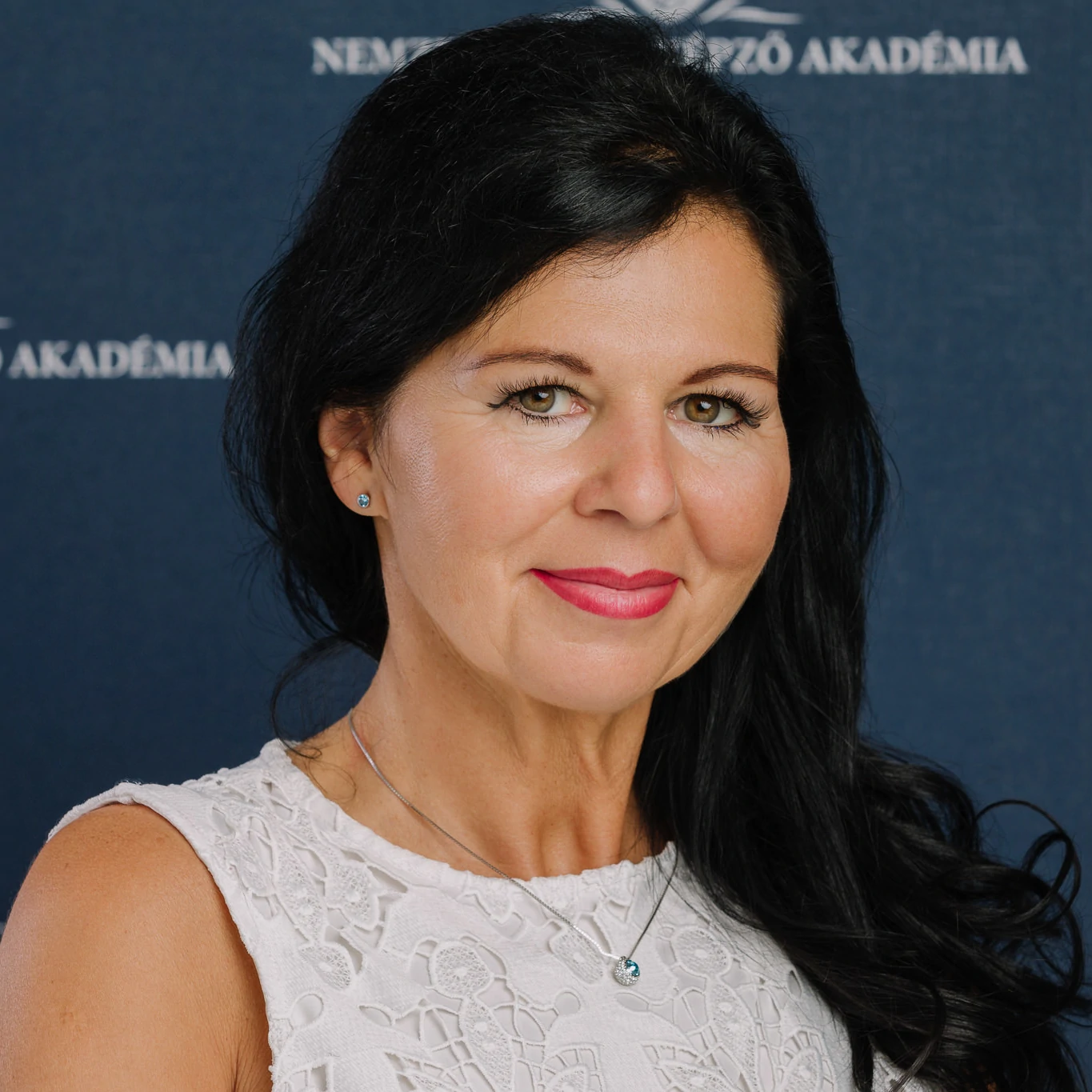
Director of Secondary School Education:
Adrien Lengyel master teacher of biology and chemistry at the Calvinist Secondary School in Kecskemét
Training coordinator: Enikő Gulyás kozepiskolai.kepzesi.iroda@edu-sci.org
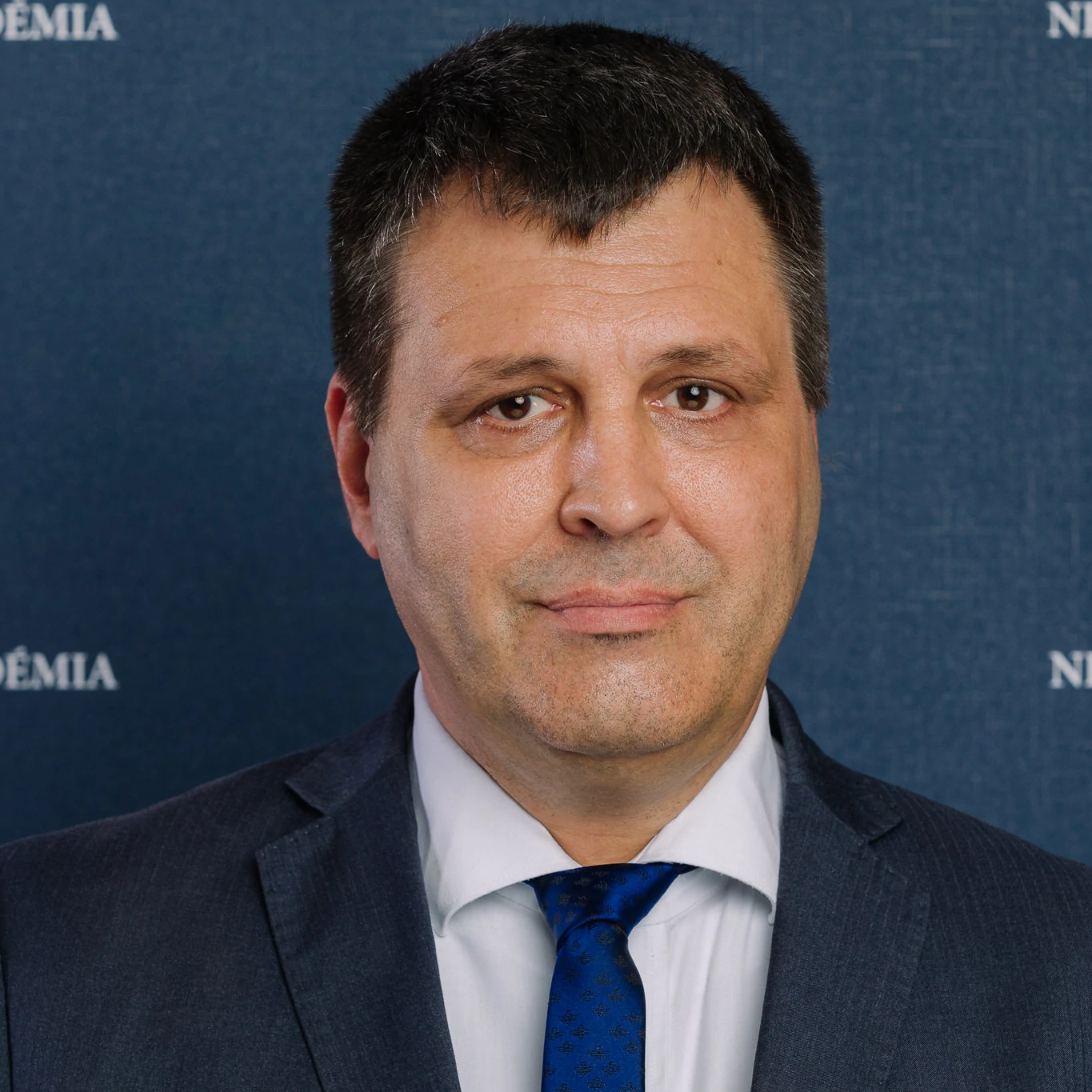
Pedagogical expert:
Sándor Bán master teacher of biology at the Radnóti Miklós Experimental Grammar School in Szeged

Head of the National Education Centres:
Zsolt Nyiszor master Teacher of biology and chemistry at the Nagy Lajos Grammar School for the Cistercian Order
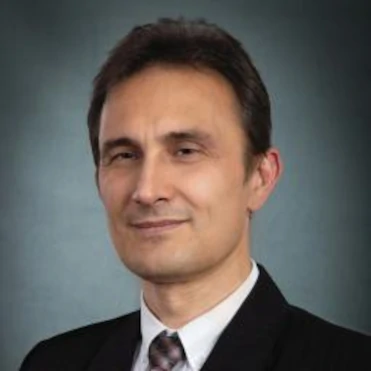
Head of the Regional Training Centres:
Róbert Kertész master teacher of biology and chemistry at the Táncsics Mihály Secondary Grammar School in Kaposvár
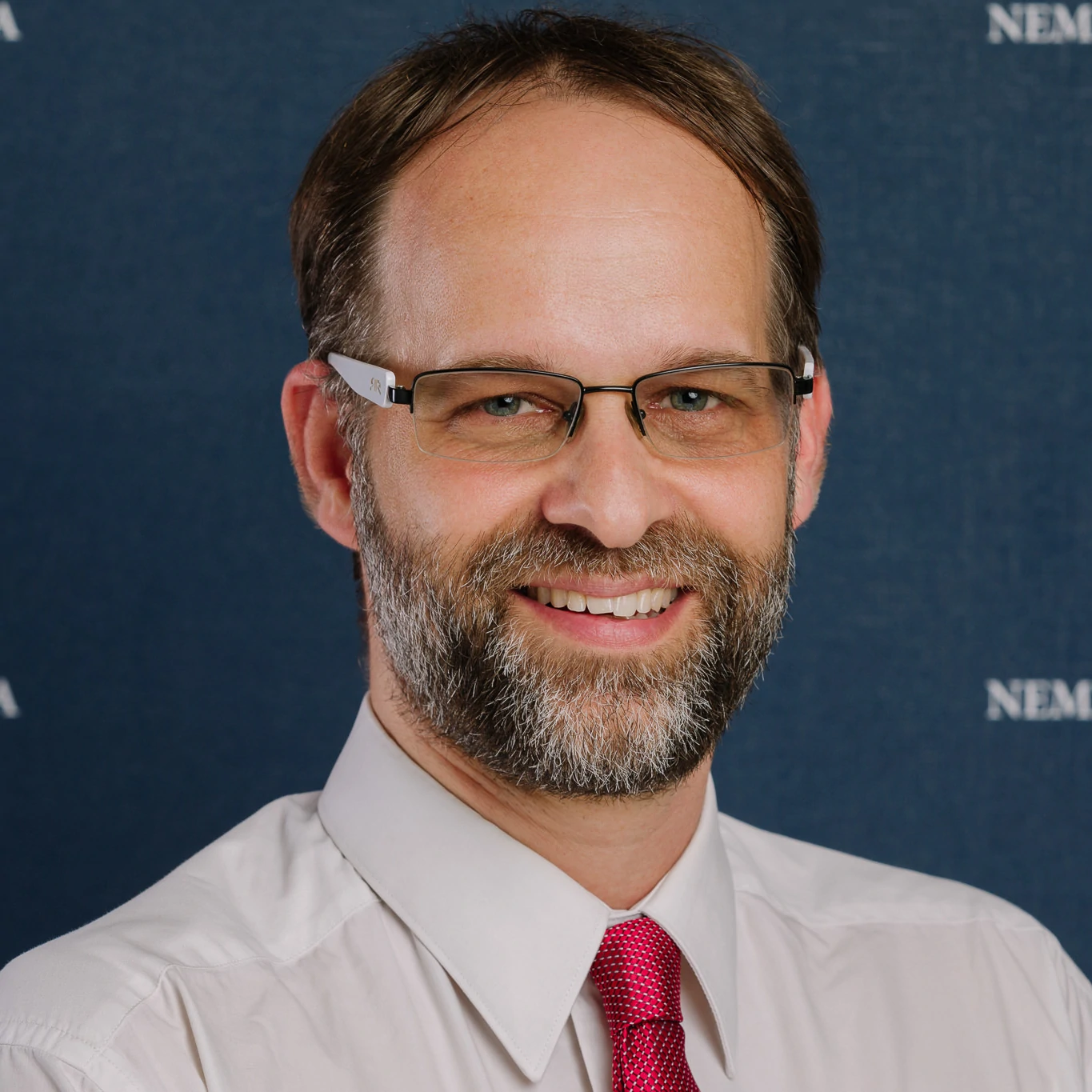
Head of University relations:
Rakonczay Zoltán Professor and head of the Institute of Pathophysiology at the Albert Szent-Györgyi Medical School of the University of Szeged
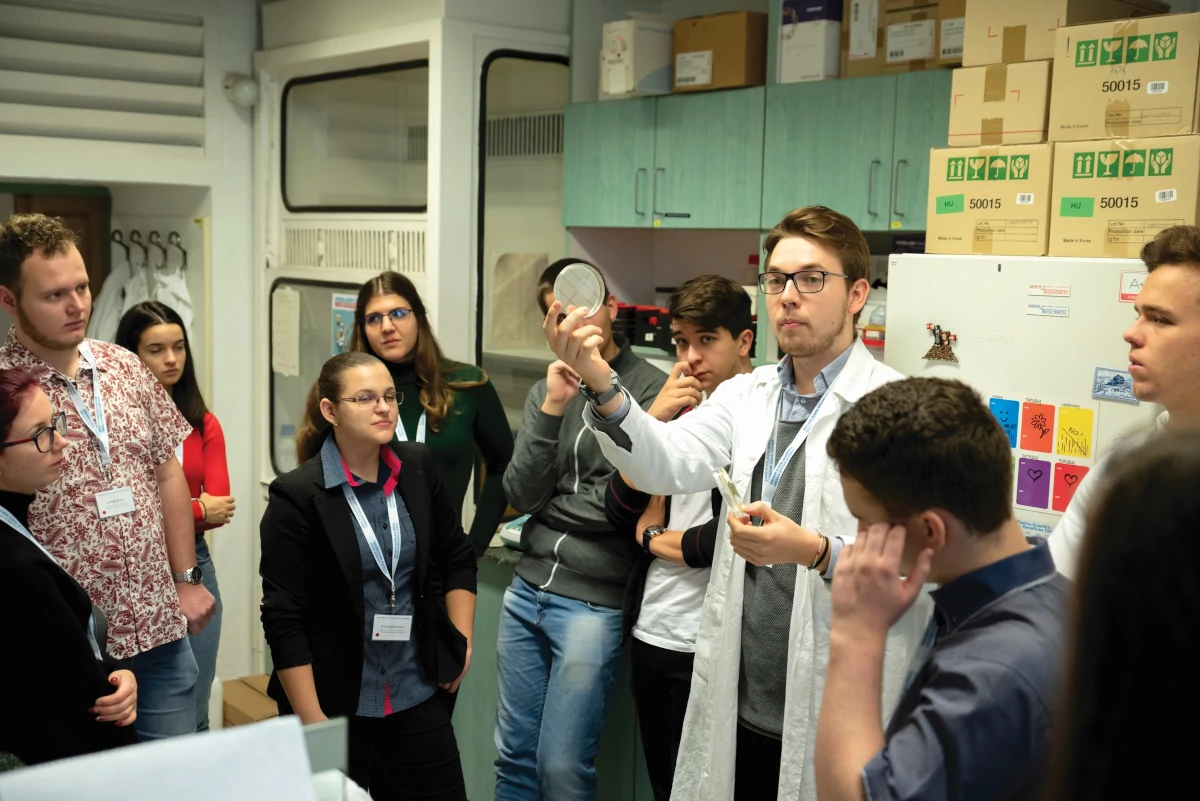
Laboratory demonstration led by a Szent-Györgyi Student at the Biological Research Centre, Szeged
SECONDARY SCHOOL EDUCATION PROGRAM (SSEP)
The first element of the NASE’s education program focuses on secondary school aged pupils. The professional background of the Secondary School Education Program is given on the one hand, by the talent nurturing traditions of biology and chemistry education in Hungary, and on the other hand, represented by successful foreign examples.
The novelty of this initiative, which is unique in domestic talent management, is that it combines the development experience of professionals working in secondary schools with the expertise of university teaching staff. This makes it possible to introduce a new form of education, in which modern scientific content, with the help of the best didactic methods, ensures that hundreds of young, interested pupils can gain insight into the process of cutting-edge biomedical research and those that show some interest can join in as well.
The education plan of the program includes both, independent knowledge processing, group presentations, related discussions, conference participation, and laboratory experiments which can be carried out in several locations.
The process also includes important evaluation steps, as continuous reflections are necessary for the sake of sustainability. The teachers therefore collect the opinions and experiences of the participants after each event. Based on the accumulated information, the education program is reviewed every academic year to ensure its effectiveness by incorporating any modifications deemed necessary.
.webp)
Laboratory work at the TERMOSZ Laboratory (Radnóti Miklós Experimental Grammar School in Szeged)
CURRENT OPPORTUNITES FOR TALENTED SECONDARY SCHOOL PUPILS
Hungary’s education system has a rich history of particularly effective talent management traditions in the fields of mathematics and natural sciences. In addition to the, now commonplace, achievements of Nobel Laureates, this is supported by the fact that talented Hungarian secondary school pupils regularly achieve resounding success in these subjects. The medals won at the International Student Olympiad and the successes in Natural Science and Technical Innovation Competitions all support the effectiveness of these traditions. In the last 8-10 years, it has also become clear that our most successful students are welcomed with open arms by the world’s leading institutions of higher education. At the same time, it is also an unfortunate experience that only a small percentage of students who go abroad at this age return to their homeland, so, practically speaking, other countries benefit from the secondary school education of these pupils.
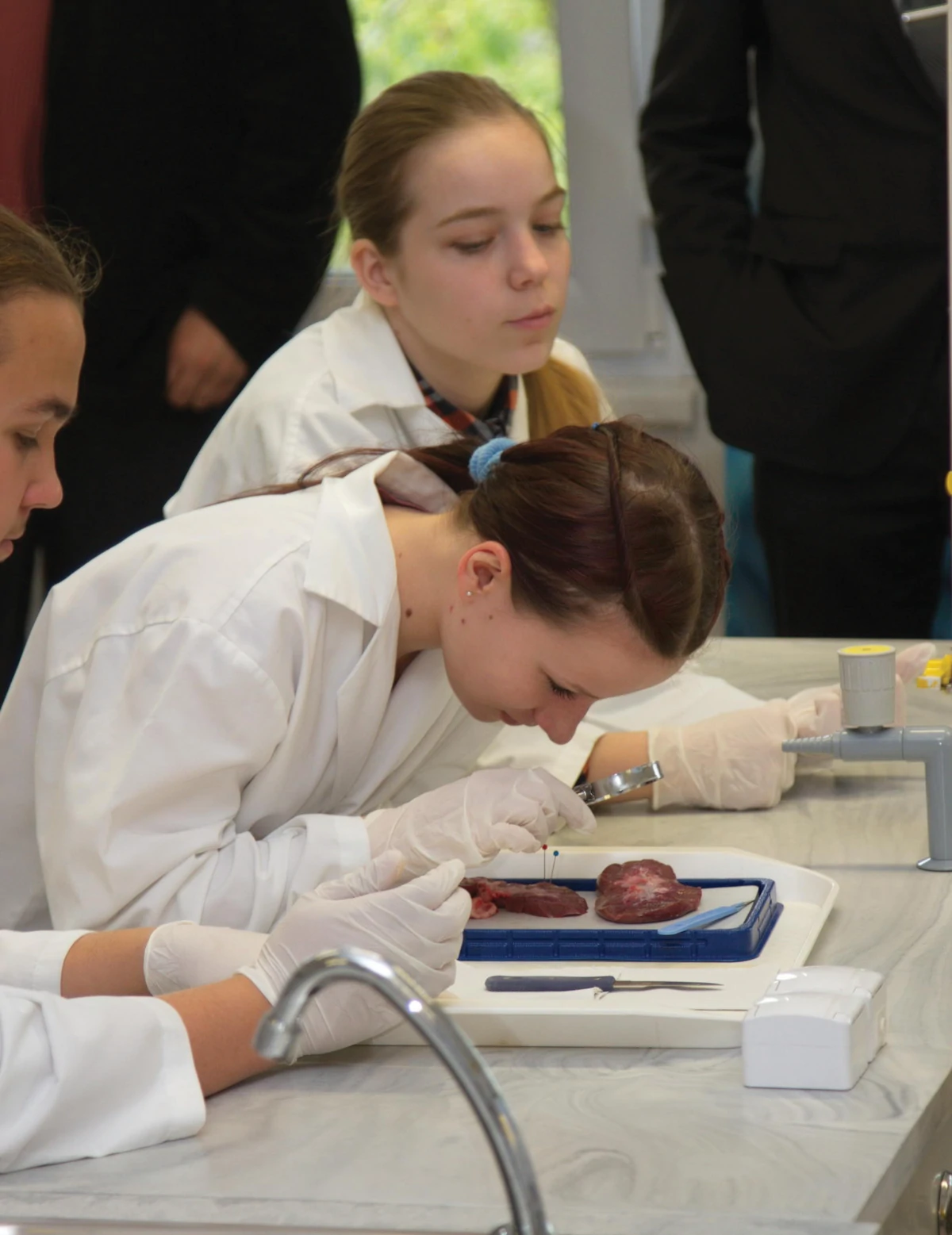
Laboratory experiments
THE GOALS OF THE SECONDARY SCHOOL EDUCATION PROGRAM
When defining the goals of the program, in addition to the facts stated above, it is essential to consider the opinions of the leaders of the secondary schools and research groups. The following well-articulated goal system was compiled based on the expressed needs:
-
To provide an effective alternative to further education abroad
-
Effective aid in biology education at secondary schools
-
Community building and social sensitivity
-
Bringing together teachers working in the field of talent management
 az SZTE Gyakorló Gimnáziumban.webp)
Eric F. Wieschaus (Nobel Laureate in Medicine, 1995) at the University of Szeged Teacher Training Secondary and Primary School
THE ACTIVITIES OF THE SECONDARY SCHOOL EDUCATION PROGRAM
The activities of the Program were designed in such a way as to, as much as possible, achieve the set goals. The activities include theoretical education based on pupils’ independent learning and group work, but great emphasis is placed on the development of practical skills. Some of the activities can be done from home, while other forms of education take place in the regional or national centres. The common goal of all activities is to impart, with the help of the most modern pedagogical methods possible, valuable knowledge that is difficult or not able to be obtained within the framework of normal public education. The content of this imparted knowledge will contribute to successful research in the future.
-
Processing of online course material
-
Laboratory experiments
-
Group development programs performed in Regional Education Centres
-
Participation in the “Meeting of Nobel Laureates and Talented Students” conferences